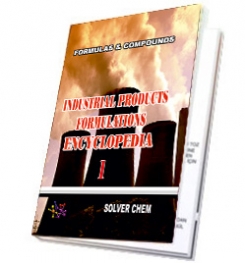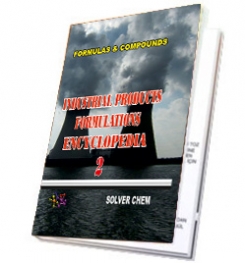Glycol contamination is common in engine oils and can greatly alter the properties of the lubricant. Antifreeze causes a thickening of the oil, increasing the viscosity and not allowing it to flow as readily as before. This can lead to boundary conditions in parts of the engine that require a less viscous fluid to properly lubricate and protect them. It also creates an acidic environment within the oil, resulting in corrosion within the system, especially on copper surfaces. The additives within the oil can be compromised as well.

These images illustrate the formation of oil balls.
Once contaminated, the oil continues the same route of flow, from the sump, into the crankcase, through various parts of the engine and through the filter. With the added glycol, these filters become plugged sooner, which can cause reduced flow and eventually, once the bypass pressure is reached, a condition in which you are no longer filtering your oil. This allows particles that normally would have been filtered out to remain in the system, disrupting the lubricating film and resulting in surface damage to components.
Antifreeze also mixes with oil to form small globules called oil balls. Although very small, typically 5 to 40 microns in size, they can cause big problems. These balls are abrasive and create surface erosion. A common place to see this would be on the inside walls of the cylinder, where the oil balls could cut and gouge into the wall. They can produce all types of surface fatigue and lead to lubrication failures in areas of very tight tolerances.
Beware of Black Mayonnaise
The effects of coolant and antifreeze contamination are many. One is simply a rise in the oil’s viscosity or a thickening of the oil. This often produces what’s called black mayonnaise, which is a thick gel or emulsion when mixed with the oil. Acids are formed like glycolic acid, formic acid and other organic acid types. Flow is restricted as this black mayonnaise moves throughout the engine. It can occlude to the walls and narrow passageways, and interfere with oil flow, causing partial or total starvation where the oil is intended to go. It is very common for glycol and these emulsions and gels to completely block flow-through filters. It is reported to be the No. 1 cause of premature filter failure in a diesel engine and overall poor lubrication.
In my case, the culprit for this contamination was a cracked manifold, but there are several ways glycol can find its way into oil. If the piston heads are warped or cracked, contamination would be allowed into the system. In more severe cases, cavitation wear provides a straight path for ingression. Cavitation occurs when an air bubble implodes against a hard surface, resulting in a pitting action. As it becomes more aggressive, this can cause a hole or crack in the cylinder wall.
The first step to combating this problem is to discern that you have a coolant leak. Periodic checks of fluid levels are the easiest way to do this. If you notice levels beginning to change, try to find the coolant leak. Fixing the leak should be your first priority. Otherwise, any actions you take to clean the oil will be in vain. For most engines with small sump volumes, an oil change after the leak has been fixed will ensure that any contamination has been mitigated by new oil.
In systems with large volumes of oil, small leaks can be hard to detect. Oil analysis can reveal glycol in several ways. A patch test can show sludge or precipitates associated with this type of contamination. A blotter test is another simple test that can expose the presence of glycol. If the oil appears thick and doesn’t wick into the blotter paper very well, glycol contamination could be a possible culprit.
Although many years have passed since my breakdown on the road home, the lessons it taught me are still useful today. Simple inspections on all types of machines provide invaluable information as to their condition as well as reassurance that they are operating in a reliable manner.

any engine oil
LUBRICATING OIL
FORMULATIONS
ENCYCLOPEDİA
is enough.
LUBRICATING OIL FORMULATION ENCYCLOPEDIA has many formulations of greases, complex grease, lithium grease production,sodium greases formula, formulation,multigrade engine oils manufacturing process,motor oils making, gear oil production, synthetic engine oils,semi synthetic motor oils,gasoline oils,diesel oils production process,composition of turbine oils,transmission oil manufacturing, production of cycle motor engine, tractor oils,mineral based motor engine production,heat transfer oils, slideway oils formulation, formulations, cutting oils formula,formulas grinding oils,mould oils manufacturing process and etc.
All lubricating oils in the encyclopedia are producible easily.You need no help and no technıcal support. The encyclopedia is enough to produce lubricating oils and engine oils itself.
LUBRICATING OIL
FORMULATIONS
ENCYCLOPEDIA
is written clear and understandable.


HARD BOOK E BOOK
RELATED TAGS: What is engine oils,making synthetic diesel engine oil,semi synthetic engine oil manufacturing process,mineral based engine oil production, heavy duty engine oil formulation,high performance engine oil formula,formulas,properties of motor oils,synthetic motor oil msds, analysis,composition of engine oils,additives of motor oils, mineral engine oil formulation,make semi synthetic diesel engine oil, base oils,synthetic base oils,light neutral oil,heavy neutral oil,performance additives package, properties of diesel engine oil, how to formulate engine oils, types of engine oils, synthetic motor oils,ingredients of engine oils,compounds of engine oils, index of motor oil,characteristic of motor oils,application of motor oils,combination of synthetic engine oils.
SOLVERCHEM PUBLICATIONS

|
|

|
|

|
|
